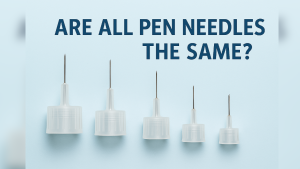Be sure to talk to your healthcare professional before making any treatment changes.
Introduction
Proper meal planning is a cornerstone of effective diabetes management. Whether you have Type 1, Type 2, or gestational diabetes, what you eat and how you structure your meals can significantly impact your blood sugar levels. In this blog post, we will explore the essentials of meal planning for diabetes, including the importance of balanced meals, portion control, and the value of a varied diet. These principles will help you maintain stable blood sugar levels and improve your overall well-being.
Balanced Meals for Diabetes
Balanced meals are crucial for people with diabetes as they help regulate blood sugar levels and provide essential nutrients. A well-balanced meal typically consists of three primary components:
1. Carbohydrates: Carbohydrates have the most direct impact on blood sugar levels. Choose complex carbohydrates like whole grains, legumes, and vegetables over simple sugars. These release glucose more slowly into the bloodstream, preventing spikes in blood sugar. Aim for a moderate portion of carbs in each meal.
2. Protein: Protein helps stabilize blood sugar levels and promotes a feeling of fullness. Good sources of protein include lean meats, poultry, fish, tofu, beans, and low-fat dairy products. Incorporate a moderate amount of protein into your meals.
3. Healthy Fats: Healthy fats are essential for overall health and can help slow down the absorption of carbohydrates, reducing blood sugar spikes. Include sources of unsaturated fats, such as avocados, nuts, seeds, and olive oil, in your meals.
The Plate Method
A practical approach to balanced meals for diabetes is the plate method. It involves visually dividing your plate into sections:
– Half of the plate should be filled with non-starchy vegetables like leafy greens, broccoli, and peppers. These are low in carbohydrates and high in fiber, helping to control blood sugar.
– One-quarter of the plate can contain lean protein sources like grilled chicken, fish, or tofu.
– The remaining one-quarter is for carbohydrates, which might include brown rice, quinoa, or whole-grain pasta.
Portion Control
Portion control is vital in managing blood sugar levels. Even healthy foods can cause spikes if consumed in excess. Here are some tips for portion control:
1. Use measuring tools**: Invest in measuring cups and a kitchen scale to accurately portion your food.
2. Read food labels: Pay attention to serving sizes on food labels to ensure you’re not inadvertently overeating.
3. Practice mindful eating: Eat slowly, savor each bite, and listen to your body’s hunger cues. This can help prevent overeating.
4. Avoid super-sized meals: When dining out, choose smaller portions or ask for a to-go container to save half of your meal for later.
The Importance of a Varied Diet
Variety is not only the spice of life but also a key principle of a diabetes-friendly meal plan. A varied diet offers several benefits:
1. Nutrient diversity: Different foods provide various essential nutrients. A varied diet helps ensure you get a wide range of vitamins and minerals your body needs for overall health.
2. Preventing food fatigue: Eating the same foods repeatedly can become monotonous and may lead to unhealthy food choices. A diverse diet keeps meals interesting and enjoyable.
3. Balanced nutrition: A variety of foods helps you balance your intake of carbohydrates, proteins, and fats while controlling calorie intake.
4. Reducing the risk of nutrient deficiencies: Relying on a limited range of foods can increase the risk of missing out on specific nutrients. A varied diet minimizes this risk.
In Conclusion
Meal planning is a powerful tool for managing diabetes effectively. By focusing on balanced meals, portion control, and a varied diet, you can better regulate your blood sugar levels and improve your overall health. Remember that individual dietary needs may vary, so it’s essential to work with a healthcare provider or a registered dietitian who can tailor a meal plan to your specific requirements. With the right approach to meal planning, you can enjoy delicious, satisfying meals while effectively managing your diabetes.
For More:









